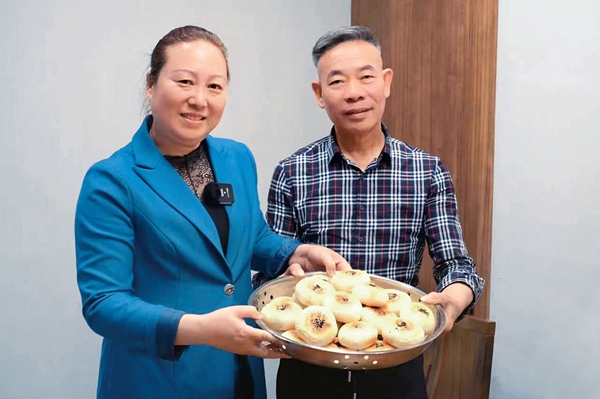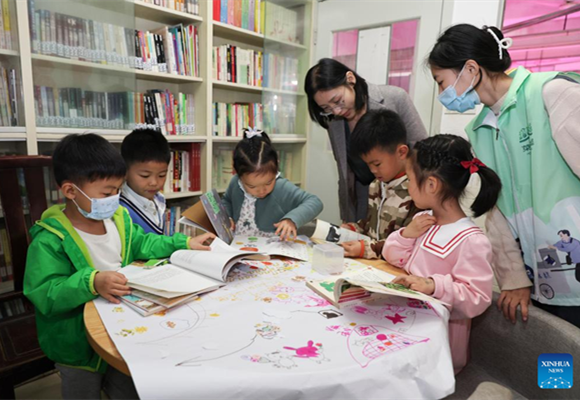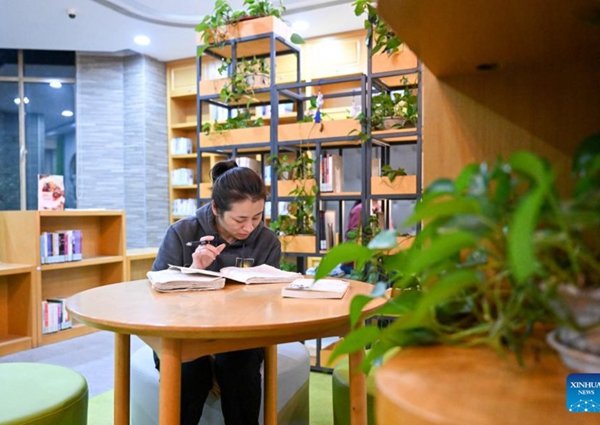15 Minutes to Save a Life, Do You Have What It Takes?
As precious seconds ticked by, all the medical team could think was they might have only 15 minutes to save a life.
A patient gasping for air was wheeled into the COVID-19 ward and hooked up to an electrocardiogram monitor while a ventilation mask was hurriedly placed over his face.
A catheter was inserted into a vein to prepare for an infusion of live-saving medication and the collection of samples for rapid checks on blood oxygen levels.
The dangerously ill patient was still struggling for breath. Heeding the doctor's call to start intubatio — an invasive procedure that involves placing a tube in the patient's airway — the nurses wheeled a ventilator to the bedside and initiated the second phase of the lifesaving procedure.
For nearly two months in Wuhan, Hubei province, Sun Hong guided this nerve-wracking procedure multiple times.
Deputy director of the Peking Union Medical College Hospital's obstetrics and gynecology department, Sun arrived in Wuhan, the hardest-hit city during the COVID-19 epidemic, on Feb 19. She was part of the third medical assistance team sent by the hospital to help their Wuhan counterparts treat the most severe cases.
While pressure on overstretched hospitals had been eased by the time Sun arrived, the treatment of critical patients, whose conditions were exacerbated by kidney or heart complications, remained a daunting task.
"Critical cases of COVID-19 were unable to take care of themselves and needed all kinds of life support or drugs. Their conditions could worsen rapidly," Sun said.
"When a severely ill patient was transferred to our ward, a series of steps was taken rapidly. Within 15 minutes, we completed the initial steps," she added. "I am proud to say that the efforts of the nurses were indispensable and essential in saving the lives of COVID-19 patients whose lives were hanging by a thread."
Sun has a deep sense of pride in her work and genuine trust in her team members. She also has a wealth of experience fighting potentially fatal pathogens.
"Doctors and nurses play different roles in the treatment of a patient and collaboration often prevails over the division of work," she said.
"Nurses are mainly responsible for rigorously implementing the treatment plan devised by doctors while providing accurate accounts of immediate effects of therapies and other signs of disease progression. These concerted efforts helped guarantee the best efforts to save the lives of our patients."
The risk of nurses becoming infected from treating patients was real, Sun said.
"We learned that the removal of sputum in a patient was directly linked to their recovery, but the procedure also carried a high risk of spreading the virus," she said.
"We rolled out targeted training designed to equip each nurse with this technique while ensuring their safety. No nurse on our team backed off."
It was not the first time that Sun, who is also the chairman of the China Nursing Association's Intensive Care Committee, had come face-to-face with a deadly contagious disease.
In 1985, she helped care for the first AIDS patient detected on the Chinese mainland. During the outbreak of severe acute respiratory syndrome in 2003, she was part of the team that set up and operated wards to treat SARS patients.
This time around, Sun encountered more than the cruel episodes of life and death that abound in any epidemic.
An elderly patient had stayed in her ward for more than a month but eventually died. Her daughter agreed to donate the body for a postmortem, Sun said.
"When we phoned her, she said her only request was to meet the doctors and nurses who were involved in treating her mother," Sun said.
"Her only wish was to thank us for caring for her mother to the very end."
"We met and paid our respects to her for her decision."
On April 15, Sun left Wuhan with her colleagues as the city emerged from 76 days of lockdown.
However, she will always remember the eerie quietness of the residential compound next to the hospital's accommodations base.
As night fell, the solemn-looking buildings — devoid of any signs of human activity during the daytime — gradually lit up.
"The perseverance and collective efforts of Wuhan people left an indelible mark on my memory. We all respect and admire them," Sun said.
(Source: China Daily)
Please understand that womenofchina.cn,a non-profit, information-communication website, cannot reach every writer before using articles and images. For copyright issues, please contact us by emailing: website@womenofchina.cn. The articles published and opinions expressed on this website represent the opinions of writers and are not necessarily shared by womenofchina.cn.








 WeChat
WeChat Weibo
Weibo 京公网安备 11010102004314号
京公网安备 11010102004314号